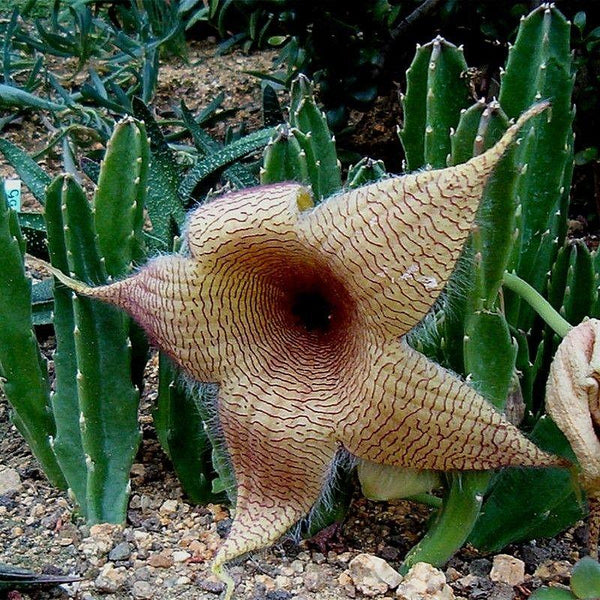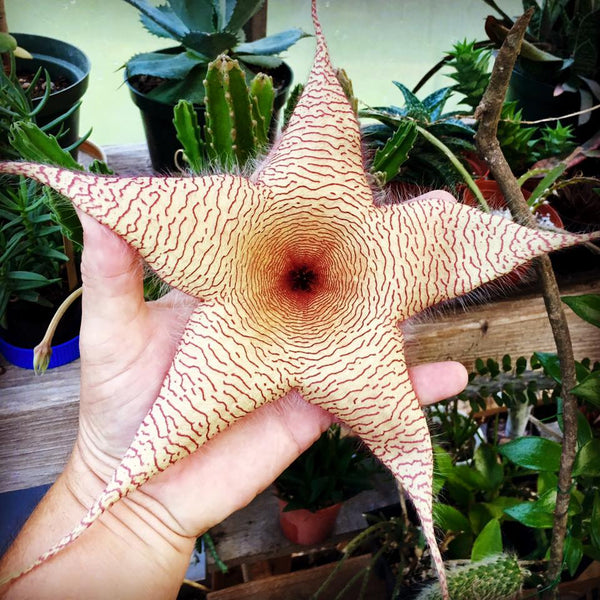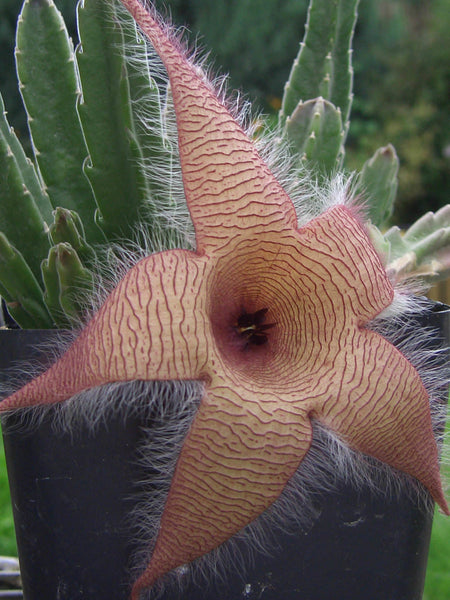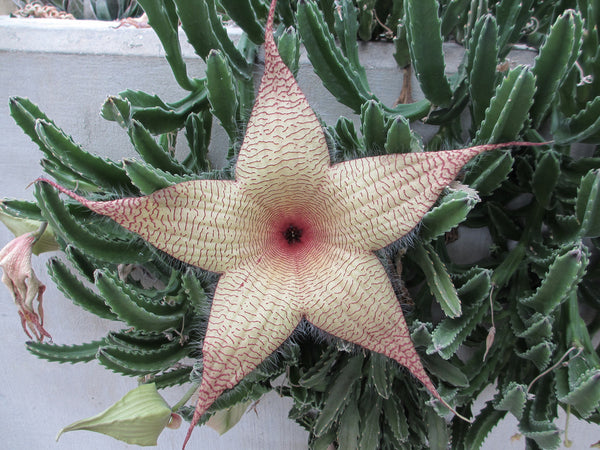Stapelia gigantea (Zulu giant) - 5 seeds
Stapelia gigantea, commonly called carrion flower or zulu giant , is a spine-free succulent member of the milkweed (not cactus) family that is native to dry desert areas from Tanzania to South Africa. The common name comes from the malodorous flower aroma which resembles the smell of rotting meat. For those willing to look the other way on flower aroma, additional common names include giant toad flower or starfish flower.
The focal point of this plant is the fleshy, 5-pointed, star-shaped flowers (to 10-16" across), each being pale ochre-yellow with thin transverse maroon lines. This is one of the largest flowers in the plant world. Flowers bloom in fall (flower buds are triggered by shortened daylight hours in fall). Flowers are pollinated by flies which reportedly find the carrion aroma irresistible. Spineless, 4-angled, succulent stems grow upright to 8-12" tall before scrambling sideways with the tips still erect. Plants in the ground may grow to 24" wide. Seed pods resemble milkweed and each individual seed has a milkweed-like parachute. Plants in Hawaii have escaped gardens (they spread easily by vegetative means and wind-blown seed) to the point where the plant is now considered in Hawaii to have invasive potential.
Winter to USDA Zones 9-10 where it is best grown in fertile, sunny, dry to medium, well-drained soils. New plants appreciate somewhat consistent watering, but established plants perform quite well with minimal moisture. Plants propagate easily by division and cuttings. Allow plants to rest in winter (cool temperatures of 50-5 degrees F. at night with reduced watering). Grow in a sunny window as a houseplant in St. Louis. Flowers may be snipped from indoor plants if aroma becomes a problem.
Several species are fairly easy to grow and Stapelia (Orbea) variegata is a well known cottage windowsill plant. Others, often those with slightly hairy stems and the more unusual flowers, are more challenging and require careful watering (with some fertilizer) during the growing season and complete withdrawal of water during the winter months. A minimum winter temperature of 10°C (50°CF) is acceptable, providing that plants are kept absolutely dry. A heated growing bench or incubator may help delicate plants to get through the colder months. However, many species live under shrubs in habitat and prefer light shade rather than full sun.








